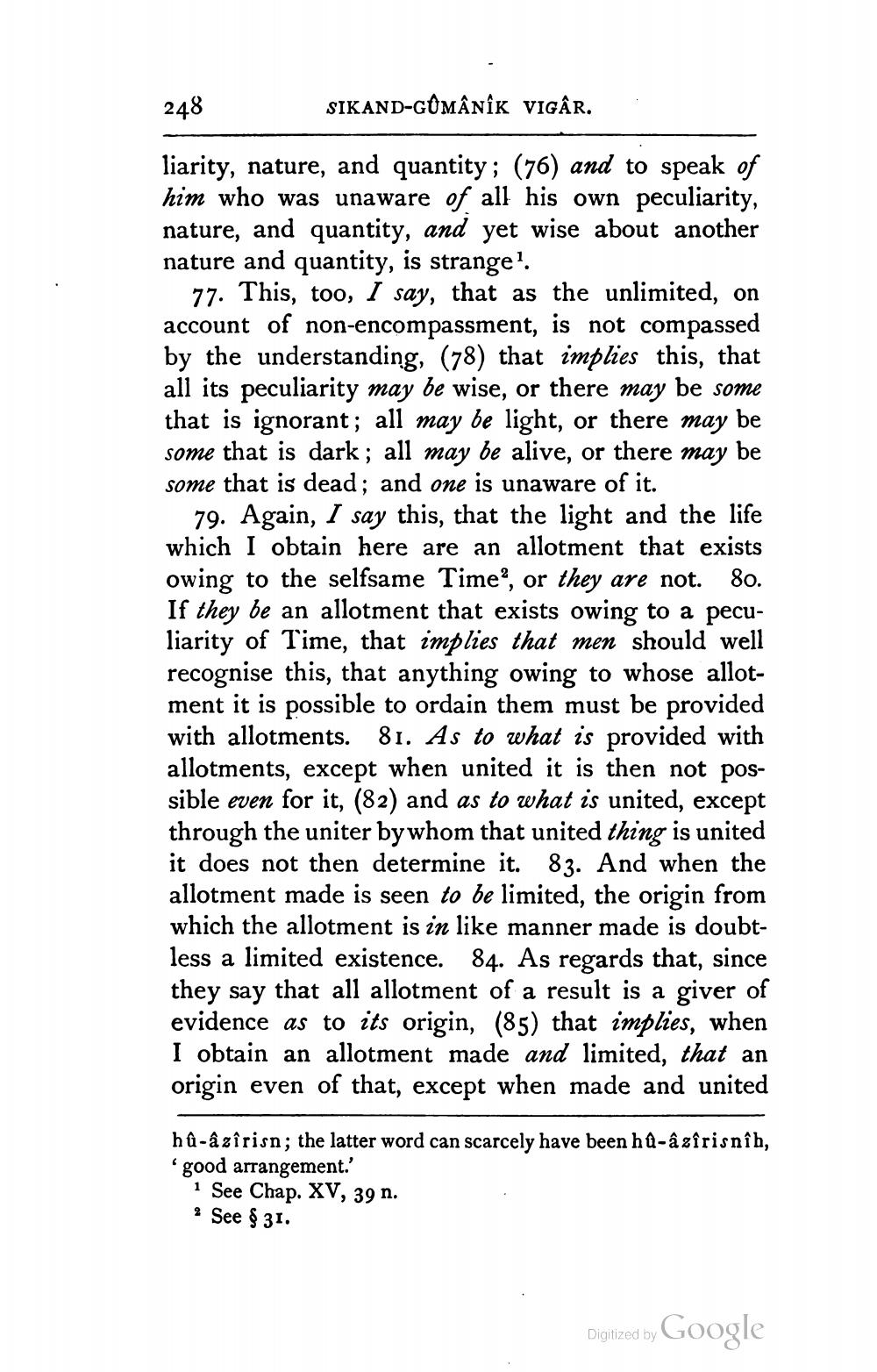________________
248
SIKAND-GÛMÂNÎK VIGÂR.
liarity, nature, and quantity; (76) and to speak of him who was unaware of all his own peculiarity, nature, and quantity, and yet wise about another nature and quantity, is strangel.
77. This, too, I say, that as the unlimited, on account of non-encompassment, is not compassed by the understanding, (78) that implies this, that all its peculiarity may be wise, or there may be some that is ignorant; all may be light, or there may be some that is dark; all may be alive, or there may be some that is dead; and one is unaware of it.
79. Again, I say this, that the light and the life which I obtain here are an allotment that exists owing to the selfsame Time?, or they are not. 80. If they be an allotment that exists owing to a peculiarity of Time, that implies that men should well recognise this, that anything owing to whose allotment it is possible to ordain them must be provided with allotments. 81. As to what is provided with allotments, except when united it is then not possible even for it, (82) and as to what is united, except through the uniter by whom that united thing is united it does not then determine it. 83. And when the allotment made is seen to be limited, the origin from which the allotment is in like manner made is doubtless a limited existence. 84. As regards that, since they say that all allotment of a result is a giver of evidence as to its origin, (85) that implies, when I obtain an allotment made and limited, that an origin even of that, except when made and united
hû-âzîrisn; the latter word can scarcely have been hû-âzîrisnih, 'good arrangement.'
1 See Chap. XV, 39 n. ? See $ 31.
Digitized by Google




